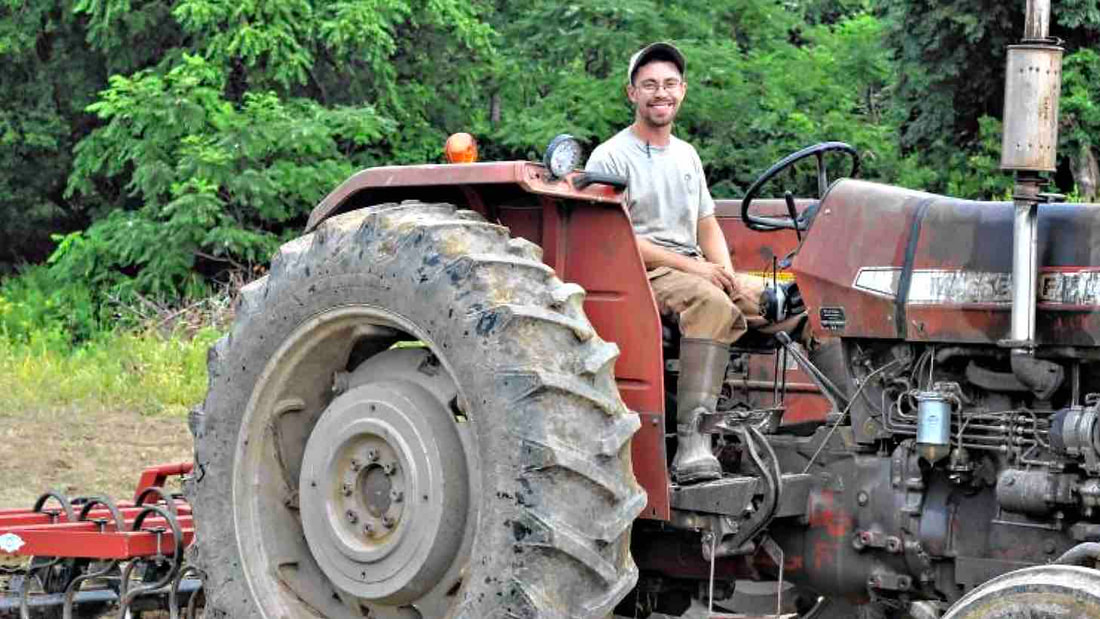|
Valley Bounty: Stretching growing season brings winter greens
By Jacob Nelson | Daily Hampshire Gazette | April 16, 2021 It’s been months since the last winter squash were brought in from the field, and traditional early spring crops like asparagus are just beginning to poke through the soil. But local farms are still bringing produce to market — storage crops including potatoes, beets and carrots, along with freshly harvested spinach, lettuce, kale and radishes. Farmers in the Valley have long experimented with strategies for year-round growing. Spring-dug parsnips are left to overwinter in the ground, emerging sweeter after a late March thaw (look for these now). Alliums like garlic and onions are planted in the fall, slumber under protective coverings, then shoot up when the weather warms. Recently, greenhouse-grown greens have become more common. Year-round growing is good for farm businesses and the local economy, diversifying farm income and adding year-round jobs. It also stabilizes community access to healthy local produce around the year. Though hardly new, it represents a fast-growing sector of local farming. Still, total production remains small and best practices are rarely standardized, as many farmers find their own way through trial and error. Meanwhile, many food buyers aren’t aware of local farms’ success in expanding what’s in season. “I don’t think there’s enough education about this kind of farming,” says Harrison Bardwell, head farmer and owner of Bardwell Farm. “We want people to understand that this is possible — that fresh greens are around in January and onions in May, all grown here in the Valley.” His 25-acre diversified vegetable farm in Hatfield will supply both this year. “We’ve been growing in high tunnels during the summer for three years,” Bardwell says, referencing the large metal-framed, plastic-skinned greenhouses now common on local farms. “This year was the first year we used them for winter production.” Bardwell’s motivation for growing year-round is threefold. First, given the investment in building high tunnels, it makes sense to maximize their use. “We also wanted to expand what we could sell, and keep on more employees through the slower months,” he says. By all accounts, their pilot year went well. “We’re getting to the end now,” Bardwell says. “But we’re still harvesting arugula we reseeded a month ago, and we’re on our third cutting of the original spinach and chard crops we planted in the fall.” Though they grew only in two unheated 70-by-30-foot tunnels, the farm was able to retain more staff than previous winters and sales were great, especially for leafy greens such as chard, lettuce and the spinach Bardwell Farm is known for. “When selling local produce in the winter, anything green is a big draw,” says Troy Asher, the farm’s operations manager. Especially in spring when enthusiasm for storage crops is waning, “offering greens — or anything that’s a staple in peoples’ kitchens — helps boost sales,” he says. Winter production brings new challenges. Yes, there’s the cold to deal with, but the length of daylight is an equally big factor. Most plants stop growing considerably when there’s less than 10 hours of daylight, Bardwell explains. With that in mind, crops must be planted in time to reach near-maturity by early November, when that magic daylight line is crossed. “We start winter crop seedlings in August,” Bardwell says, “and by September we’re transplanting and transitioning our high tunnels to winter production.” This conflicts with using them to extend summer production, but it’s a calculated trade-off. During the colder, darker period between November and February, plant metabolism slows way down, and on really cold nights, workers drape remay cloth over the plants inside for added insulation. But while growth is minimal, there are advantages. In the summer heat, many leafy greens are triggered to ‘bolt’ and go to seed, growing tall and becoming bitter. “But if they grow slowly over two months in the winter, you can continually harvest from them without that happening,” Bardwell says. Plus, with plants respiring less, watering needs are minimal. “I don’t think I watered at all from the last week of December until February, when things started ‘waking up’ again,” he says. Outside the high tunnels, Bardwell Farm has half an acre of over-wintered onions nearing harvest. “These are specific long-season onions that we also started in the greenhouse in August,” Bardwell explains. “In September we planted them in the field, and they established their roots during the last few months of warmth and longer daylight.” They do need some protection from the winter elements. “We decided to grow ours in low tunnels,” he says. These look like long, skinny greenhouses extended over the length of a bed. “What’s really neat about these onions,” Bardwell says, “is they’re full-sized bunching onions that we’ll harvest in late May or June, where most local onions are harvested in late summer.” Customers can find greens, onions (when they’re ready) and more from Bardwell Farm at their farm stand, now open Friday through Sunday from 10 a.m. to 6 p.m. at 49 Main St. in Hatfield. Online ordering for curbside pickup is also available by visiting bardwellfarm.com/online-farm-store. Enrollment remains open for their CSA program, with info available at the farm stand or online. As Bardwell Farm and hundreds of other local farms push the boundaries of year-round growing, the availability of local produce should only keep expanding to new seasons. Peaches in December? Maybe not. But strawberries? Well, UNH Cooperative Extension has been doing some research … Jacob Nelson is communications coordinator for Community Involved in Sustaining Agriculture (CISA).
0 Comments
Your comment will be posted after it is approved.
Leave a Reply. |
AboutFollow Bardwell Farm and all of our adventures here! Archives
April 2024
Categories
All
Gift CardsGive the gift of a CSA farm share or farmstand goods with gift certificate from Bardwell Farm! NewsletterSubscribe to Harry's Farmstand Monthly newsletter! |
DIRECTIONS |
|
|
©2022 BARDWELL FARM, ALL RIGHTS RESERVED
|


 RSS Feed
RSS Feed


